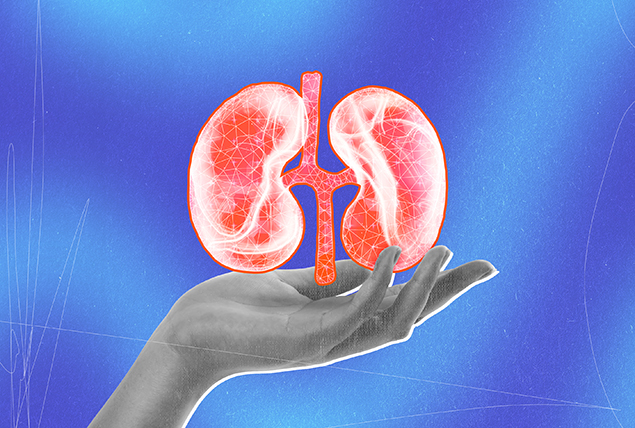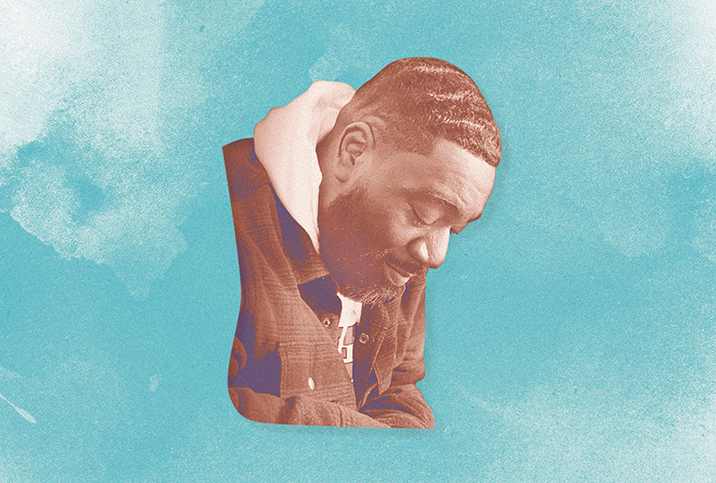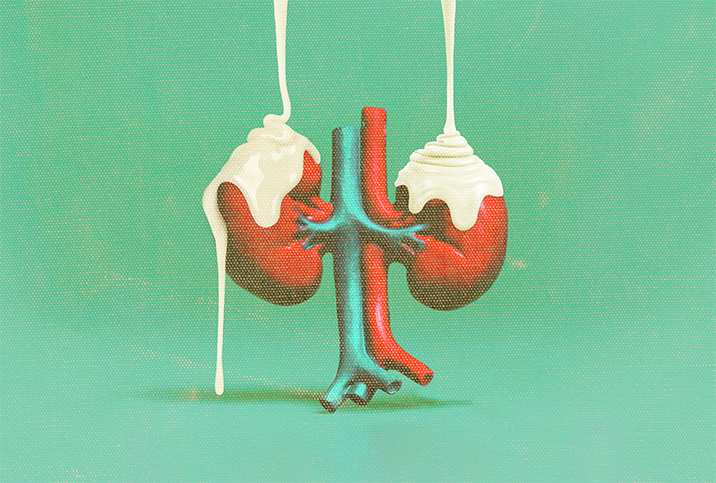Detecting Chronic Kidney Disease Before It's Too Late

Located near the middle of the back, just below the rib cage, the kidneys are a pair of organs that act as the body's filter. Their primary function is to concentrate toxins, filter them out of the blood and send them to the bladder for urine production. If the kidneys fail to function properly, the result is a buildup of toxins in the blood, which can damage all other organs.
Kidneys also play a huge role in regulating blood pressure.
When kidneys start losing function, it can be a sign of chronic kidney disease (CKD). According to Mayo Clinic, signs and symptoms of kidney disease may not present until the damage is advanced.
Chronic kidney disease can also affect your sex life. According to a 2015 study, up to 70 percent of men with end-stage kidney failure experience some level of erectile dysfunction (ED). People with CKD also can experience decreased libido, dysmenorrhea (pain associated with menstruation) and infertility.
A Centers for Disease Control and Prevention (CDC) report from 2021 estimated that more than 1 in 7 adults in the United States have chronic kidney disease. Of the 37 million adults with CKD, as many as 9 in 10 are not aware they have it.
"Kidney disease comes in various forms," said Kelly McNagny, a University of British Columbia professor whose expertise includes kidney function. "Most commonly, it's when your kidneys stop filtering your blood well and you start leaking proteins into your urine. Then you start having valuable things lost from your blood."
Causes and risks
The common causes of kidney disease include genetic predisposition, infection and poisoning, but the most common is diabetic nephropathy, McNagny explained.
Mayo Clinic defines diabetic nephropathy as a serious complication stemming from type 1 and type 2 diabetes.
"Diabetic nephropathy affects the kidneys' ability to do their usual work of removing waste products and extra fluid from your body," the clinic reported.
About 1 in 3 Americans with diabetes also have kidney disease, according to the National Institute of Diabetes and Digestive and Kidney Diseases (NIDDK).
But does that mean some people are more prone to kidney disease than others?
"Definitely," McNagny acknowledged.
People with hypertension and high blood pressure tend to suffer more damage to their kidneys. Nearly 1 in 5 people in the U.S. with high blood pressure also experience kidney disease, according to the NIDDK.
Certain genes are linked to the disease, meaning gene edits or variants in a person's genes can increase the likelihood of developing kidney disease.
Another factor that can increase risk is the use of drugs, both illegal and medicinal. For example, drugs taken to dampen the effects of autoimmune diseases can cause damage to the kidneys.
"You always have to watch for the counterindications on a drug that you're taking for whatever disease you have," McNagny noted.
Age is also a factor in kidney disease. People ages 65 or older represent about 38 percent of adults in the U.S. with kidney disease, according to the CDC.
The different types of kidney disease
There's a tremendous number of types of kidney disease, McNagny said, adding that some types are genetic, such as the rare Fabry disease and cystinosis. While the former affects all organs of the body and their ability to get adequate blood and the latter leads to the overproduction of a natural chemical called cystine, both can result in kidney damage and eventual kidney failure.
Polycystic kidney disease is also a genetic disease that leads to the growth of cysts on your kidneys.
Another related condition is glomerulonephritis, where the tiny filters in the kidney—known as glomeruli—lose their ability to separate waste from the blood. Focal segmental glomerulosclerosis (FSGS) is scar tissue in the glomeruli, a rare disease that can cause permanent kidney damage or even failure.
McNagny described it as a cryptic disease.
"Sclerosis refers to a kind of scarring of the cells that form the filter in the kidney," he said, adding that it's not a very common kind but is one of the leading causes of kidney transplants.
Diabetes and autoimmune diseases can cause kidney malfunction in which too much of an antibody can block the filters in the kidneys. An example is lupus nephritis, which occurs when your immune system attacks the tissues in your body, leading to painful swelling and damage to the kidneys.
Some infectious diseases can also contribute to kidney disease. E. coli is a type of bacteria often found in raw, undercooked or spoiled meat, and consumption can trigger an infection targeting the kidneys.
"Anything that gives you systemic inflammation of the blood can be a major problem for your kidneys," McNagny explained.
What are the stages of kidney disease?
According to the American Kidney Fund, kidney disease has five stages, each dependent on how well your kidneys are working.
In the early stages, classified as stages 1 to 3, the kidneys are still working to filter waste from the blood. In stages 4 and 5, the kidneys have to work overtime and may stop working entirely.
McNagny explained that kidney disease is sometimes called a minimal change disease, because there doesn't seem to be a big difference in the kidneys but they're starting to show problems. Detection is often done through blood and urine tests, where the former is tested for urea and the latter is tested for proteins.
It's likely that in the early stages, an individual may experience few signs or symptoms, and that's why so few people with kidney disease realize it until the condition has advanced significantly.
"Remarkably, you can survive a lot of damage to your kidneys," McNagny noted.
You can also survive with one kidney. However, the consequences are that you must try to achieve a healthy lifestyle, including a nutritious diet, exercise and regular checkups. Alcohol and contact sports are not advised.
According to the U.S. Renal Data System's 2020 Annual Report, among patients with end-stage kidney disease who were initially wait-listed in 2013, the median wait time for a kidney transplant was 49.2 months, with median wait times for adults being much longer (46 months to 59.1 months based on age brackets) than for children 17 or younger (7.3 months).
Early detection is key to mitigating damage from kidney disease.
Don't have a doctor you see regularly? Get one. Giddy telehealth can connect you with a doctor who can answer your questions and evaluate your situation. Many physicians offer video visits, which are a good way to see a doctor quickly since a lot of them have same-day appointments. Giddy telehealth's easy-to-use online portal provides access to hundreds of healthcare professionals whose expertise covers the full scope of medical care.


















